| Zeitschrift Umělec 2004/4 >> Moscow Case: from Dialectics of Hope to a Chronology of Hopelessness | Übersicht aller Ausgaben | ||||||||||||
|
|||||||||||||
Moscow Case: from Dialectics of Hope to a Chronology of HopelessnessZeitschrift Umělec 2004/401.04.2004 Alena Boika | info | en cs |
|||||||||||||
|
The First Moscow Biennale with a meaningful name Dialectics of Hope will open on January 28, 2005. This first one will be the most scandalous one. The scandal is associated with the two most prominent curators Viktor Miziano and Joseph Backstein. Initially, both names were among the head curators. Then, it turned out that Miziano was absent from the curatorial group.
On May 22, 2004, it became known that Viktor Miziano, deputy director of the State Museum and Exhibition Center ROSIZO (Russian Fine Arts Center), editor-in-chief of the Art Magazine, and one of the best-known in the west Russian curators of contemporary art exhibitions, was excluded from the international curatorial group working on the First Moscow Contemporary Art Biennale. The Culture Ministry, which coordinates the Biennale, delicately formulated the reason of exclusion as "due to Viktor Miziano's being busy with other exhibition projects such as biennale in Venice and San-Paulo." It should be noted that no official comments were made by the Ministry, which demonstrates an extremely soviet conduct of an affair. They fire a person and simply present him with a fait accompli explaining nothing to the public. And if San-Paulo was successfully completed because the process was impossible to stop than Venice is open to a big question. According to other evidence confirmed later, the situation took place due to a conflict within the curatorial group, which the organizers tried to hide as long as possible. At the same time, Museum and Exhibition Center ROSIZO Contemporary Art Department headed by Miziano was deprived of allowances, department employees dismissed. Among them there also were two editors of the Moscow Art Magazine, the first Russian independent art edition. That is a blow was delivered to the magazine, whose editor-in-chief was Miziano. Besides, the project, which Miziano co-developed with Bart de Baere for Europalia Festival, was passed over to Backstein. So, there is a direct evidence of not a mere conflict between the two but successive repressions and pressing one of them out of state-controlled area. In the end of May, Kommersant, Russian Independent Newspaper, published an article, Moscow Biennale will Open without Viktor Miziano, saying that Miziano was "removed from the international curatorial group". The article also gave the names of Biennale participants: AES group, Siniye Nosy (Blue Noses) group, and Oleg Kulik. The information was received from unofficial sources. At the first press conference on July 8, in response to the question about Miziano, who is associated with this project initiation by many, I. Backstein said, "Viktor Miziano's contribution cannot be overestimated. He was one of initiators and we discussed this project <…> for more than two years. <…> Viktor actively participated in preparation but this man is supernaturally busy, take my word for it. I do not try to refute some rumors. Not only that he edits the leading art magazine in the country. He is also head of the San-Paulo Biennale and the Russian Pavilion at the Venice Biennale. Beside this, he carries out a huge number of projects. This is why I was appointed curator and coordinator<…>." Viktor Miziano is the best Russian specialists in contemporary art, which his enemies also recognize. His curatorial style never followed the official tastes and so, it disturbed everyone, who aimed at power and money. The status of vice-chair of the Biennale Committee, a fictitious and pseudo-democratic organ, was cynically kept for him. Backstein was careful to comment, "…in this status Viktor continues to render the most effective assistance to this project," which is an obvious absurd as Miziano was never even invited to a simple press conference. At the first press conference, they read out the names of Biennale curators and some star participants. The international team of curators includes such famous names as Rosa Martinez and Iara Boubnova, authors of two previous Manifesta Festivals, Nicolas Bourriaud, Hans Ulrich Obrist, and others. As for the artists, the organizers announced such stars of contemporary western art as Mauricio Katellan (Italia), Rirkrit Tiravania (US), Sergio Vega (Argentina), Monika Sosnowska (Poland), and Isaac Julian (UK). Among Russian participants aforementioned Oleg Kulik, AES and Siniye Nosy groups were announced as well as radical performance-maker Elena Kovylina. After a month, the information drastically changed. The composition of curatorial group remained unchanged. As for the artists, the following restriction was introduced, "young artists under 35 from Russia and foreign countries". You will understand why soon. On August 4, 2004, an open discussion about the Moscow Biennale was initiated on the website artinfo.ru. Two documents showing that Miziano was removed as a result of bureaucratic intrigue were published. The documents say that the real reason for Miziano's removal was a letter or, considering best Russian traditions, delation, which Biennale Curator and Coordinator Joseph Backstein sent to the Federal Culture and Cinematography Agency on April 19. He wrote that Miziano took "a destructive position," "hampered proper work," arranged "obstruction," "deliberately began spreading false information about Biennale status," "failed or did not want to be <…> loyal to the project and his Russian and international colleagues." So, with "grieving heart" he recommended to remove Miziano. The real "sensation" of this game is as follows: though the letter was written on behalf of the curatorial group it was not signed by anyone of the curators. In case the author informed them about it and consulted with them they must have signed it in agreement. Instead, five famous Moscow artists: Oleg Kulik and the members of AES+F group signed the letter and wrote "we have read the text and hereby, we acknowledge our agreement." In fact, they concerned all work done for the Biennale, which they did not bear relation to… After a month delay, the recommendation was implemented. Miziano was removed notwithstanding all his services to the project. Viktor Miziano only learned about that report on May 20 and commented on it with his natural tact, intellect, and sense of humor in a reply letter sent to Maya Kobahidze, head of Russian Culture Ministry Department of State Support of Art. He tried to save the First Moscow Biennale born in throes and squabbles from international scandal. He mentioned his rich professional experience and successful projects implemented together with I. Backstein. He wrote that there was no documentation of facts imputed to him and gave "the following explanations of the situation: - the report by Joseph Backstein is a result of the annoying psychological frustration caused by exclusive creative and nervous overpressure; - inadequate reaction of Moscow artists, with whom I have long been on friendly and creative terms, is a result of inexcusably prolonged pause in informing the public about Moscow project preparation, which entailed rumors and fantasies and began to force nervousness." Further, Miziano wrote about the consequences, which are unavoidable in case the intrigue is not stopped. Having forgotten this "regrettable misunderstanding" he suggested a "professional compromise". He offered his services in making a small author's project, conducting a colloquium, preparing an article for the catalogue. That is anything to formally indicate his presence in the project and thus, to turn off a scandal. In response to these documents testifying to unethical behavior of the art scene representatives, who have long been stuck in quarrels and intrigues, an informal group of artists, critics, and other cultural workers published an open letter with a recall to make Biennale situation transparent on August 24. It becomes clear now why the concept of exhibited artists changed after August scandalous expose. At the September 2 second press conference, the organizers announced that only young (from 20 to 30 years old) and unknown ("their names will convey nothing to you," –as they said) artists will be represented within the main curatorial project and their number will not exceed 45 participants. They did not mention O. Kulik, AES group, and others announced before. Now it is known that these artists participate in a special project STARZ, which I. Backstein prepares. A. Osmologsky, who is not a smaller star, refused to participate in this project. None of new names was unveiled. The final list will only be known a week or two before the Biennale opening. Recently, famous gallery owner and promoter Marat Gelman and art theorist Andrey Kovalev published a selection of links, which informed about main participants of the event, on the Internet. On the Biennale official website such significant changes were not explained either. However it is obvious that they happened due to the scandal, which involved both curators and well-known artists. Biennale was under the threat of discredit. This is why Backstein had to urgently change the course. Some words about organization, which also causes questions. Until now, the Biennale core idea, its basic meaning remains unclear. The curatorial group first met with its full complement in June, on the eve of Manifesta Festival opening (literally several months before the Biennale!). Culture Ministry and ROSIZO do not hurry to publish materials of the conference, Big Project for Russia, which Miziano prepared. So, they want to erase from people's memory the recollections about strategic advice, which Harald Zeeman, Germano Chelant, Francesco Bonami, Rene Block, Robert Storr, and Hans Ulrich Obrist gave in Moscow. In case they do publish these materials everyone will see that none of strategic and innovative recommendations was taken into consideration for the Moscow Biennale preparation. The very conception of exhibition as a creative and intellectual project is in danger. Instead, the current establishment ideology, which insists on an immediate combination of art work, success, and money, is present. Everyone needs exhibition, biennale as a means to legitimate rise in works' prices. It seems that the real aim of the operation is to eliminate intellectual curatorship and to establish a new extraintellectual regime on the art scene. To sum it up one can briefly say that notwithstanding its bright title the Moscow Biennale conflict demonstrated complete hopelessness of the six European curators' good idea. Dialectics of Hope is also the book by famous leftist intellectual Boris Kagarlitsky. After these events, he wrote an open letter with a demand not to associate the Biennale title with his book and his ideas, "I thought that a biennale named "Dialectics of Hope" was to elaborate new models of a dialogue and representation of communities, which are interested in changing and possible politicizing cultural space from the bottom. <…> I ask not to confuse our hopes with the reality of the ruling classes' official corrupted politics." … The name is taken as some concession, a conciliatory gesture, outward appearance, a promise that the Biennale will be public and will reflect different positions. By now, it is only the Biennale scandal, which is public. Very soon we will see how much the exhibition will correspond to the declared conception. P.S. It is impossible not to say that Biennale situation looks very Russian because further cardinal changes and change of poles in the immediate proximity to the opening can not be excluded. (when preparing the article the author referred to the materials available on GIF.ru and artinfo.ru websites)
01.04.2004
Empfohlene Artikel
|
|||||||||||||
|
04.02.2020 10:17
Letošní 50. ročník Art Basel přilákal celkem 93 000 návštěvníků a sběratelů z 80 zemí světa. 290 prémiových galerií představilo umělecká díla od počátku 20. století až po současnost. Hlavní sektor přehlídky, tradičně v prvním patře výstavního prostoru, představil 232 předních galerií z celého světa nabízející umění nejvyšší kvality. Veletrh ukázal vzestupný trend prodeje prostřednictvím galerií jak soukromým sbírkám, tak i institucím. Kromě hlavního veletrhu stály za návštěvu i ty přidružené: Volta, Liste a Photo Basel, k tomu doprovodné programy a výstavy v místních institucích, které kvalitou daleko přesahují hranice města tj. Kunsthalle Basel, Kunstmuseum, Tinguely muzeum nebo Fondation Beyeler.
|







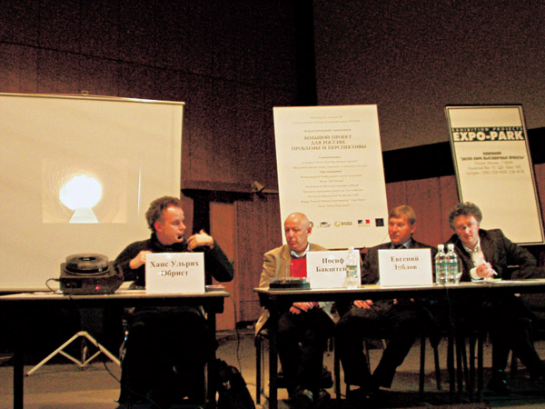
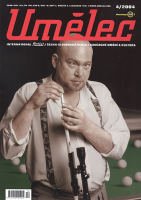


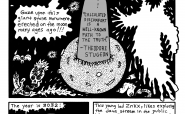

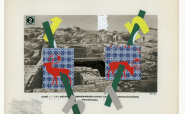
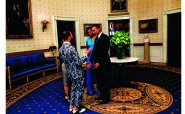
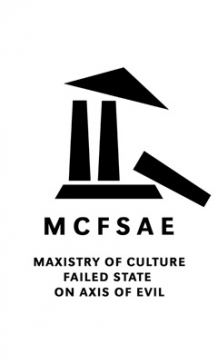






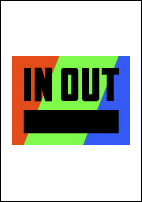




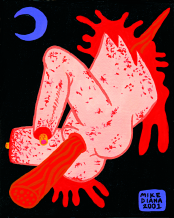

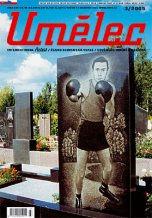
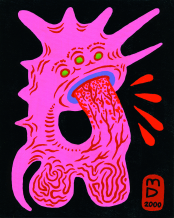


 New book by I.M.Jirous in English at our online bookshop.
New book by I.M.Jirous in English at our online bookshop.
Kommentar
Der Artikel ist bisher nicht kommentiert wordenNeuen Kommentar einfügen